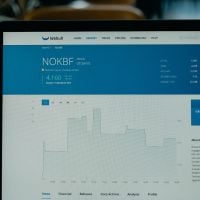The International Fund for Agricultural Development (IFAD) stands as a beacon of hope for rural communities across the globe. Established in 1977, IFAD is a specialized agency of the United Nations that focuses on eradicating poverty and hunger in rural areas, particularly in developing countries. Its mission is to empower rural populations, enhance their livelihoods, and promote sustainable agricultural practices.
By providing financial resources, technical expertise, and policy advice, IFAD aims to create an environment where rural communities can thrive and contribute to national economies. IFAD’s rural development initiatives encompass a wide range of activities designed to address the unique challenges faced by these communities. From supporting smallholder farmers with access to modern agricultural techniques to facilitating market linkages that enable them to sell their produce at fair prices, IFAD is committed to fostering sustainable development.
The organization also emphasizes the importance of social inclusion, ensuring that marginalized groups, including women and youth, are actively involved in decision-making processes. Through its multifaceted approach, IFAD seeks to create resilient rural communities that can withstand economic and environmental shocks.
The Impact of IFAD’s Projects on Rural Communities
The impact of IFAD’s projects on rural communities is profound and far-reaching. By investing in agricultural development, IFAD has helped millions of smallholder farmers improve their productivity and income levels. For instance, through targeted interventions such as training programs and access to high-quality seeds and fertilizers, farmers have been able to increase their crop yields significantly.
This not only enhances food security for their families but also contributes to local economies by generating surplus produce for sale in markets. Moreover, IFAD’s projects often lead to the establishment of cooperatives and farmer organizations, which empower communities to work together towards common goals. These collective efforts foster a sense of solidarity and shared purpose among community members, enabling them to advocate for their rights and interests more effectively.
The ripple effect of these initiatives can be seen in improved access to education and healthcare, as increased household incomes allow families to invest in their children’s futures and seek necessary medical care.
Sustainable Agriculture and Food Security
Sustainable agriculture lies at the heart of IFAD’s mission to enhance food security in rural areas. The organization recognizes that traditional farming practices often lead to environmental degradation and diminished productivity over time. Therefore, IFAD promotes sustainable agricultural techniques that not only increase yields but also protect natural resources.
This includes practices such as agroecology, organic farming, and integrated pest management, which help maintain soil health and biodiversity. By advocating for sustainable agriculture, IFAD aims to ensure that rural communities can meet their food needs without compromising the ability of future generations to do the same. The organization also emphasizes the importance of diversifying crops and incorporating climate-resilient varieties that can withstand changing weather patterns.
Through these efforts, IFAD is not only addressing immediate food security concerns but also laying the groundwork for long-term sustainability in rural livelihoods.
Empowering Women in Rural Communities
Empowering women is a cornerstone of IFAD’s rural development initiatives. Women play a crucial role in agriculture and food production, yet they often face significant barriers that limit their access to resources, training, and decision-making opportunities. IFAD recognizes that empowering women is essential for achieving broader development goals, including poverty reduction and food security.
Through targeted programs that focus on women’s empowerment, IFAD helps women gain access to land, credit, and training in agricultural practices. These initiatives not only enhance women’s economic independence but also improve their social status within their communities. As women become more involved in agricultural production and decision-making processes, they contribute to more equitable and sustainable development outcomes.
Furthermore, empowered women are more likely to invest in their children’s education and health, creating a positive cycle that benefits entire communities.
Climate Change Resilience and Environmental Sustainability
Climate change poses a significant threat to rural communities, particularly those dependent on agriculture for their livelihoods. IFAD is acutely aware of the challenges posed by climate variability and works diligently to enhance the resilience of rural populations. By promoting climate-smart agricultural practices, IFAD helps farmers adapt to changing conditions while minimizing their environmental impact.
One of the key strategies employed by IFAD is the promotion of sustainable land management practices that restore degraded ecosystems and improve soil fertility. Additionally, the organization supports initiatives aimed at increasing access to water resources through irrigation systems and rainwater harvesting techniques. By equipping farmers with the tools and knowledge needed to adapt to climate change, IFAD is fostering resilience in rural communities and ensuring that they can continue to thrive despite environmental challenges.
Access to Financial Services and Market Opportunities
Addressing the Financing Gap
IFAD recognizes that many smallholder farmers lack access to credit and financial products tailored to their needs. To address this gap, IFAD collaborates with local financial institutions to develop innovative financing solutions that cater specifically to rural populations.
Creating Market Opportunities
In addition to improving access to credit, IFAD also focuses on creating market opportunities for smallholder farmers. By facilitating connections between producers and buyers, the organization helps farmers secure fair prices for their products. This includes supporting the establishment of value chains that enhance the marketability of agricultural goods while ensuring that farmers receive a fair share of the profits.
Boosting Economic Growth
Through these efforts, IFAD is not only improving the economic prospects of rural communities but also contributing to overall economic growth.
Capacity Building and Knowledge Sharing
Capacity building is a fundamental aspect of IFAD’s approach to rural development. The organization understands that empowering communities requires more than just financial support; it necessitates equipping individuals with the skills and knowledge needed to succeed. Through training programs, workshops, and knowledge-sharing platforms, IFAD fosters an environment where rural populations can learn from one another and build on best practices.
Knowledge sharing is particularly important in the context of agriculture, where innovations and techniques are constantly evolving. By facilitating exchanges between farmers, researchers, and agricultural experts, IFAD ensures that rural communities have access to the latest information on sustainable practices and market trends. This collaborative approach not only enhances productivity but also fosters a culture of continuous learning and adaptation within rural communities.
Future Prospects and Challenges for IFAD’s Rural Development Initiatives
As IFAD looks towards the future, it faces both promising prospects and significant challenges in its mission to support rural development. The growing recognition of the importance of sustainable agriculture and food security presents an opportunity for IFAD to expand its reach and impact. With increasing global attention on climate change and its effects on food systems, there is a heightened demand for innovative solutions that promote resilience among rural populations.
However, challenges remain formidable. Political instability in certain regions can hinder progress, while economic downturns may limit funding for development initiatives. Additionally, as urbanization continues to rise, attracting young people away from rural areas poses a threat to agricultural productivity and community sustainability.
To navigate these challenges successfully, IFAD must continue to adapt its strategies while fostering partnerships with governments, NGOs, and private sector actors. In conclusion, IFAD’s rural development initiatives play a vital role in transforming the lives of millions around the world. By focusing on sustainable agriculture, women’s empowerment, climate resilience, financial access, capacity building, and knowledge sharing, IFAD is paving the way for a brighter future for rural communities.
As it confronts emerging challenges head-on, the organization’s commitment to fostering inclusive growth will remain essential in achieving its mission of eradicating poverty and hunger globally.









































